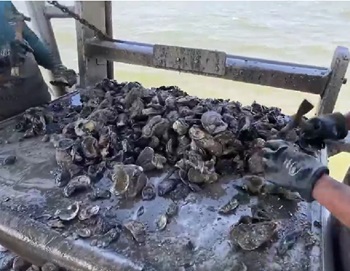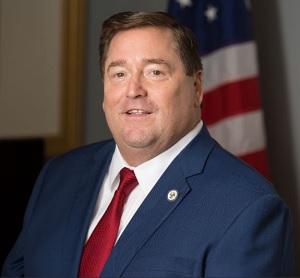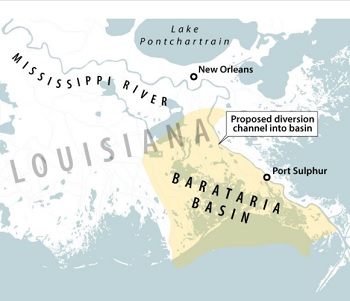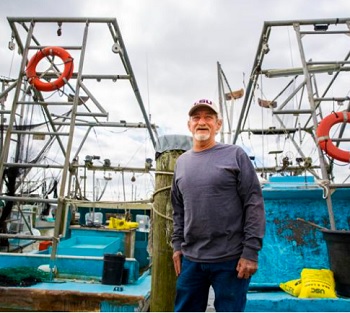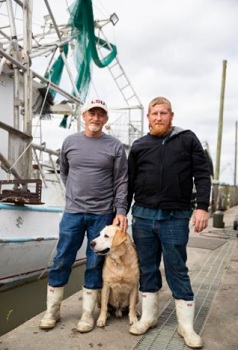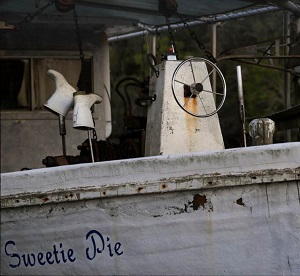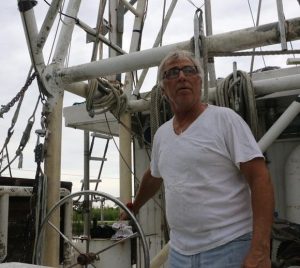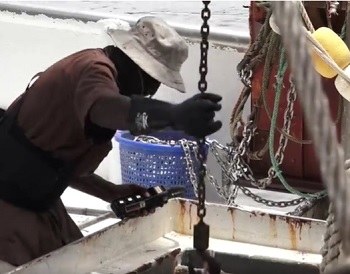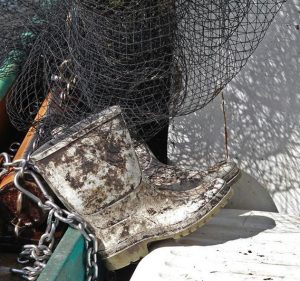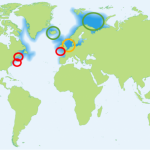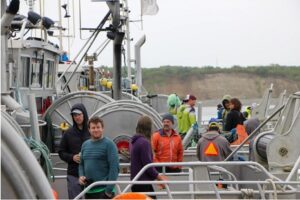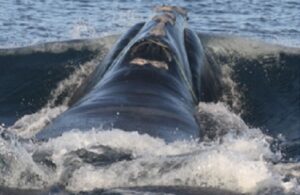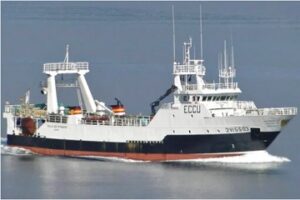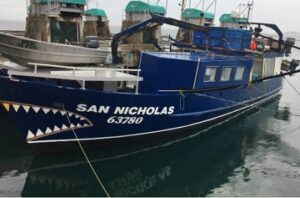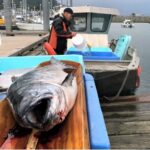Tag Archives: Mississippi River
More than $30 million & 300 jobs lost during 2019 spillway opening, MSU study finds
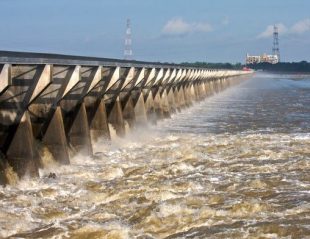 The 2019 opening of the Bonnet Carré Spillway cost the Mississippi Coast hundreds of jobs and millions of dollars, a scenario likely to repeat itself and endanger a seafood industry that has been vital to the economy and culture, a study from Mississippi State University concludes. The seafood industry also has declined because of competition from imports, the study noted. Interviews showed many fishermen, including those who specialize in shrimp and oysters, are selling their boats and leaving an industry that supported their families for generations. Video, more, >>CLICK TO READ<< 15:14
The 2019 opening of the Bonnet Carré Spillway cost the Mississippi Coast hundreds of jobs and millions of dollars, a scenario likely to repeat itself and endanger a seafood industry that has been vital to the economy and culture, a study from Mississippi State University concludes. The seafood industry also has declined because of competition from imports, the study noted. Interviews showed many fishermen, including those who specialize in shrimp and oysters, are selling their boats and leaving an industry that supported their families for generations. Video, more, >>CLICK TO READ<< 15:14
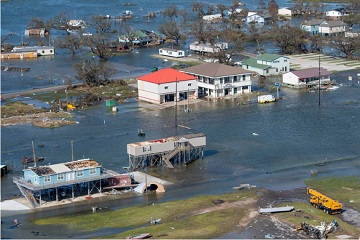
Federal Fisheries disaster declared for Louisiana over 2020 hurricanes – Mississippi also sees disaster declaration
The federal government has announced its approval of a disaster declaration over damage to Louisiana fisheries due to three 2020 hurricanes, opening the door to federal aid for commercial fishers. Separately, Mississippi fisheries were issued another disaster declaration over the unprecedented 2019 Bonnet Carre Spillway openings in Louisiana. The governor noted the affected parishes were home to nearly 2,500 commercial fishers and vessels combined along with more than 100 wholesale dealers and a similar number of charter captains. The storm led to damaged docks and boating facilities, lost gear and vessels, lost housing and loss of stored seafood, Edwards said. >click to read< 13:14
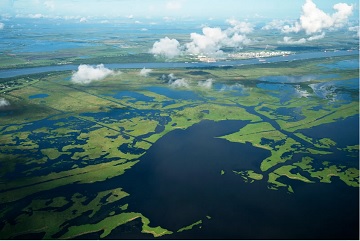
The Controversial Plan to Unleash the Mississippi River
“There’s not a son of a bitch in this parish, or within this industry, that doesn’t want coastal restoration,” Acy Cooper, the president of the Louisiana Shrimp Association tells me when I find him repairing his boat in Venice, the southernmost harbor on the Mississippi River. Cooper is a third-generation shrimper; he knows that if the marshland is not saved, that chain will come to an end. The necessary gradient of water will disappear, replaced by salty ocean. So Cooper supports some projects—using dredged mud to build marsh, for instance—but worries that the diversion will make the water near Venice too fresh, pushing shrimp out into the Gulf. The small boats used by many shrimpers can’t travel that far. He compares the diversion to a gun held to his head: “Either let me die slowly and I can adapt, or you just pull the trigger and kill me now. That’s the way I feel about it,” he says. “If you pull the trigger now, I’m dead.” The Army Corps’ draft environmental impact statement, released in spring 2021, confirmed many of Cooper’s worst fears,,, Big article, big read. >click to read< 19:22
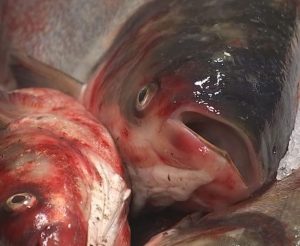
Inland Fish Fight: Invasive Asian carp threaten Kansas and Missouri waterways
Common carp, which resemble overgrown goldfish, were imported from Europe, where they were popular sportfish and table fare over 150 years ago. But bighead and silver carp were first brought from Asia about 50 years ago, Chapman said. Being plankton eaters, the carp were imported with the hope they could clean waters of unwanted materials, including sewage lagoons. It didn’t work out that way. “There’s never been a fish brought in for large-scale aquaculture that hasn’t escaped into the wild,” Chapman said. “Somebody wasn’t paying attention.” >click to read< 10:47
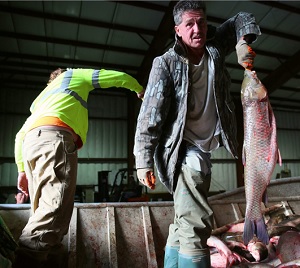
Asian Carp: Chinese investment and wisdom rescue Kentucky’s fisheries
As New Year 2020 nears, 62-year-old Angie Yu is marketing her fish products harder than usual. The Chinese American businesswoman views the holiday season as a prime opportunity for the delicacies to gain wider popularity.The entrepreneur prides herself on her choice of location. As the name Two Rivers Fisheries indicates, her plant sits on the confluence of two rivers-the Mississippi and its major tributary, the Ohio., After receiving carp from local fishermen, the plant processes, flash-freezes and boxes up the fish before shipping them out to destinations across the globe. >click to read< 10:15

Gulf Coast leaders form coalition to protect Mississippi Sound after devastating spillway openings
The marine life in the Mississippi Sound endured a tumultuous spring and summer this year due to freshwater from the Mississippi River flowing in at an unprecedented rate. Freshwater entered the Sound through the Bonnet Carré Spillway, a structure in Louisiana that releases water from the Mississippi River to prevent flooding in New Orleans. Never before had the spillway been opened in consecutive years, nor twice in one year; the U.S. Army Corps of Engineers, which operates the gates, broke both those records this year after a historic wet season across the river’s basin. >click to read< 11:38
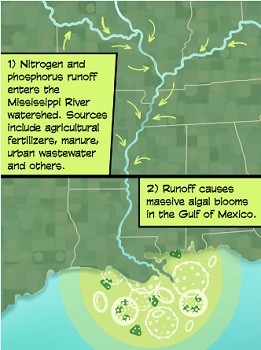
Midwestern Farm Runoff Creates Headache For Louisiana Shrimpers
“We’re not catching no large shrimp,” said Olander, who largely blames worsening environmental conditions. “There’s no explaining this here other than it’s something’s wrong with our water.” Olander grabs his phone to elaborate. He pulls up a picture of the Gulf water his cousin Douglas, also a fisherman, took from the deck of his boat earlier this summer. “That’s that green slime,” he said, pointing. “ Audio, >click to read< 11:43

Mississippi to sue Army Corps of Engineers over extended opening of spillway
Mississippi’s attorney general said Thursday that he will sue the U.S. Army Corps of Engineers for environmental and economic damage the state experienced after the Corps opened a spillway for two extended periods this year to protect New Orleans from flooding.,, Hood said he does not want New Orleans to flood but the Corps should better assess potential damage to Mississippi when deciding whether to open the Bonnet Carre spillway. He said if the federal government decides to open the spillway often, “they’ll have to pay for it because it’s just about put our seafood industry out of business.” >click to read< 17:11
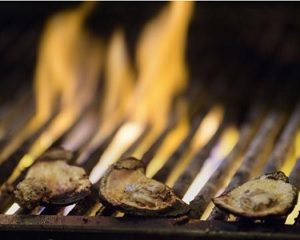
‘It’s grim.’ After spring floods, Louisiana oyster harvest slows to a trickle
Fall is when Louisiana normally begins harvesting a torrent of oysters. This year, the torrent is barely a trickle. Restaurants have resorted to rationing. They’re reaching far beyond their normal local supply chains to get whatever boxes and sacks of oysters they can find, revising menus and tapping stockpiles of frozen product to keep fried oysters on their po-boys and seafood platters. Many in the business are calling the shortage the worst they’ve ever seen, worse than the aftermath of hurricanes Katrina and Rita in 2005 or the BP oil spill disaster in 2010, both of which devastated the local industry. Photo’s >click to read< 08:29

Shrinking the Gulf Coast dead zone part 1: Downriver, part 2: Upriver
The Ace of Trade shrimp trawler motored toward Dean Blanchard’s dock early this summer and winched its nets into storage. Blanchard’s workers, strengthened by a lifetime at sea worked shirtless in the humid summer air. It was the beginning of hurricane season, and so far 2019 had been the wettest year in U.S. history. Blanchard has been in business for 37 years, and is one of the largest shrimp suppliers in America, distributing off the barrier island of Grand Isle in the Mississippi River Delta. >Click to read part one< >click to read part two< 11:00
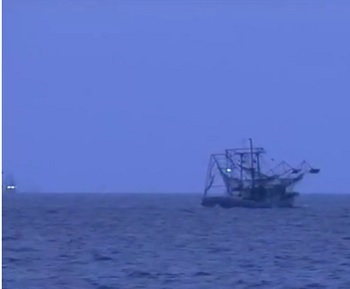
Water conditions causing ‘catastrophic’ season for in-shore and near-shore shrimpers
The Bonnet Carre Spillway has been open for 100 days as of Friday and the influx of freshwater still pouring into the Mississippi Sound is taking a major toll on coast fishermen. The shrimp season opened two weeks ago but, by most accounts, the freshwater in the Mississippi Sound is making it a season to forget for those who make their living on the water. Shrimpers are having to adjust where they drop their nets, said David Veal director of American Shrimp Processors Association. Video, >click to read< 14:56
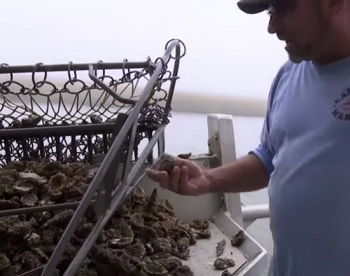
Floods in Midwest take toll on seafood in Gulf Coast area
Mississippi Gov. Phil Bryant and Louisiana Gov. John Bel Edwards have asked the federal government for a fisheries disaster declaration,,, Louisiana’s oyster harvest is 80% below average,,, “We’ve been dealing with the river since October,” said Acy J. Cooper Jr., president of the Louisiana Shrimp Association “That’s a long time it’s been high.” The die-offs are as bad in Mississippi.,, Shrimp are now in places only larger boats can reach, said Cooper. “Some of the big ones are catching a few,” he said. “The smaller boats are just catching hell.” >Video, click to read< 18:05
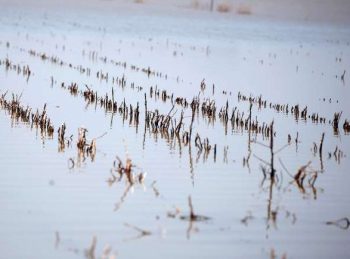
‘A major punch in the gut’: Midwest rains projected to create Gulf dead zone
As rain deluged the Midwest this spring, commercial fisherman Ryan Bradley knew it was only a matter of time before the disaster reached him. All that water falling on all that fertilizer-enriched farmland would soon wend its way through streams and rivers into Bradley’s fishing grounds in the Gulf of Mexico, off the Mississippi coast. The nutrient excess would cause tiny algae to burst into bloom, then die, sink, and decompose on the ocean floor. That process would suck all the oxygen from the water, turning it toxic. Fish would suffocate, or flee, leaving Bradley and his fellow fishermen with nothing to harvest. >click to read<21:12
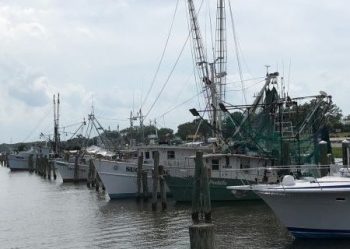
Mississippi Gulf Coast fishermen struggling as flooding disaster wipes out marine life
The Mississippi Gulf Coast is now bearing the effects of the record rain and snowmelt that has caused major flooding throughout the Midwest this year. The influx of water that has drained into the Mississippi River and is now being diverted into the gulf coast has wreaked havoc on marine life and Mississippi’s commercial fishing industry. >Video, click to read<17:37
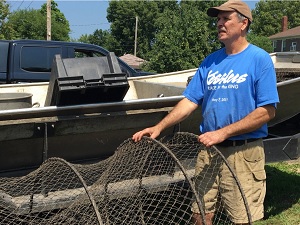
Fourth-generation fisherman keeps tradition alive in Wisconsin
Just as his ancestors did, Mike Valley draws his living from the Mississippi River. But the 1,000-pound catch that fills his handmade nets and homemade jon boat is not destined for wholesalers. Twice a week, Valley and a couple of his friends feverishly clean their overnight haul of carp, buffalo, catfish, perch and sturgeon, which soon will be snatched up by the enthusiastic customers of his retail store, Valley Fish and Cheese.,, >click to read<11:59

Louisiana Fisherman Talks Water Quality and Nutrient Reduction with Iowa Farmers
Nutrient runoff from Iowa agriculture is one of the leading causes of the growing “dead zone” in the Gulf of Mexico, an oxygen-deprived section of the Gulf, which last year was recorded to be the size of the state of New Jersey. “About 29 percent of the load coming into the Gulf originates in Iowa,” says Larry Weber, an executive associate dean professor in the University of Iowa’s College of Engineering. “If we take the Iowa portion out of the Gulf, then the nitrate load to the Gulf of Mexico would be going down. The real challenge in fixing the Gulf hypoxia starts in Iowa.” In this special edition of River to River, host Clay Masters talks with panelists about what Iowa farmers are doing, or not doing, when it comes to reducing nutrient runoff into the Mississippi River. He also speaks with Thomas Olander, Chairman of the Louisiana Shrimp Association and a fourth generation shrimper. Audio report >click to listen<10:23
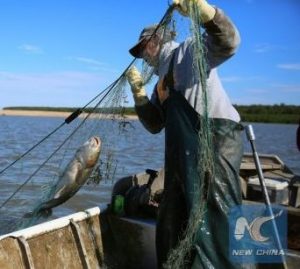
Chinese business brings prosperity to fishermen on Mississippi
After less than 10-minute cruising on the Mississippi River in west Kentucky, Mark Buttler stopped his boat near a shoal and began to cast nets. He harvested 400 pounds of fish from two fishnets on this bright autumn morning. For the 62-year-old fisherman, who joined his father for fishing soon after high school graduation in the westernmost part of the U.S. state of Kentucky, the daily routine also includes selling his catch to a local business run by a Chinese entrepreneur. Before 2013, he sold his fish either to a market up north or to a seafood restaurant in Ledbetter, Kentucky. Then Angie Yu came to the City of Wickliffe in west Kentucky and opened the Two Rivers Fisheries to process fish from the Mississippi. Yu’s efforts also coincide with the U.S. government’s eagerness to remove some of the Asian carp from the river. click here to read the story 17:53
Gulf of Mexico Now Largest Dead Zone in the World, and Factory Farming Is to Blame
 Nitrogen fertilizers and sewage sludge runoff from factory farms are responsible for creating an enormous dead zone in the Gulf of Mexico. As fertilizer runs off farms in agricultural states like Minnesota, Iowa, Illinois, Wisconsin, Missouri and others, it enters the Mississippi River, leading to an overabundance of nutrients, including nitrogen and phosphorus, in the water.,, This, in turn, leads to the development of algal blooms, which alter the food chain and deplete oxygen, resulting in dead zones. Needless to say, the fishing industry is taking a big hit, each year getting worse than the last. The featured news report includes underwater footage that shows you just how bad the water quality has gotten. Video, click here to read the story 14:13
Nitrogen fertilizers and sewage sludge runoff from factory farms are responsible for creating an enormous dead zone in the Gulf of Mexico. As fertilizer runs off farms in agricultural states like Minnesota, Iowa, Illinois, Wisconsin, Missouri and others, it enters the Mississippi River, leading to an overabundance of nutrients, including nitrogen and phosphorus, in the water.,, This, in turn, leads to the development of algal blooms, which alter the food chain and deplete oxygen, resulting in dead zones. Needless to say, the fishing industry is taking a big hit, each year getting worse than the last. The featured news report includes underwater footage that shows you just how bad the water quality has gotten. Video, click here to read the story 14:13
Invasive Asian carp less than 50 miles from Lake Michigan
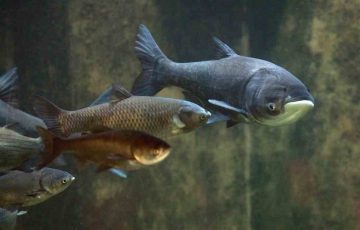 The news is mixed as Great Lake states and the federal government continue to devote money and brainpower to stopping a potential Great Lakes ecological disaster — invasive Asian carp species making their way from the Mississippi River into Lake Michigan. First the good news: The leading edge of the mass of bighead and silver carp hasn’t made much progress lately up the Mississippi and connected rivers toward Lake Michigan. Now the bad news: The younger fish — juveniles — are moving closer, the evidence shows. And they can do more damage. “The bottom line is that the juvenile front is advancing, and made a big jump last year,” said Joel Brammeier, president and CEO of the nonprofit Alliance for the Great Lakes. “And we still don’t have a permanent solution in place that’s going to solve this problem.” Read the story here 08:59
The news is mixed as Great Lake states and the federal government continue to devote money and brainpower to stopping a potential Great Lakes ecological disaster — invasive Asian carp species making their way from the Mississippi River into Lake Michigan. First the good news: The leading edge of the mass of bighead and silver carp hasn’t made much progress lately up the Mississippi and connected rivers toward Lake Michigan. Now the bad news: The younger fish — juveniles — are moving closer, the evidence shows. And they can do more damage. “The bottom line is that the juvenile front is advancing, and made a big jump last year,” said Joel Brammeier, president and CEO of the nonprofit Alliance for the Great Lakes. “And we still don’t have a permanent solution in place that’s going to solve this problem.” Read the story here 08:59
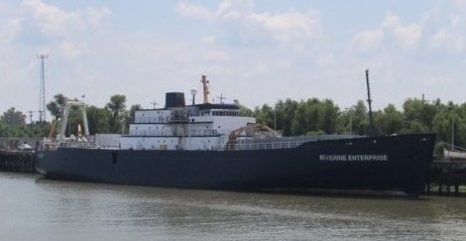
Floating factory vessel to process Invasive Asian Carp in Tennessee
Leaping from rivers and lakes like aquatic projectiles and ravaging the food base of native fish, Asian carp are loathed by outdoors enthusiasts and state wildlife officials alike for being not just a nuisance, but a threat to boating and fishing industries worth $2.9 billion and $2.1 billion, respectively, in Tennessee. Enter Joe Gillas. He sees the invasive fish as an opportunity. Gillas’ company, Riverine Fisheries International, plans to moor a factory fishing vessel at the Port of Cates Landing, located on the Mississippi River near Tiptonville, Tennessee, about 100 miles north of Memphis. The nearly 350-foot-long boat would process Asian carp caught in the Mississippi and other rivers and lakes into food products to be exported to some 20 countries, including China and Russia. “I think there’s a good business model here,” said Gillas, 53, who was born and raised in Alaska and has fished all over the world. “I think we can do something good and make money at the same time.” Read the story here 08:35
Rare blue crab found in Mississippi River at Cape Girardeau
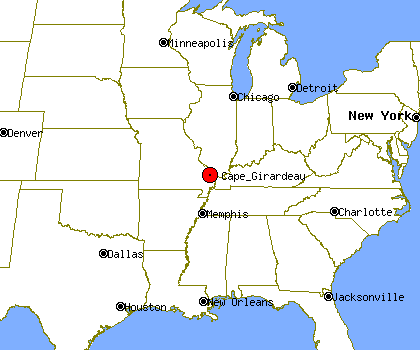 Missouri Department of Conservation resource scientists found an unexpected guest recently when they pulled a net during fish sampling in the Mississippi River. Southeast Missouri State University graduate student Nick Kramer, working with colleagues Wes Sleeper and Mark Hempel, pulled the net containing a male blue crab, according to a news release from the Missouri Department of Conservation.,, Read the article here 09:36
Missouri Department of Conservation resource scientists found an unexpected guest recently when they pulled a net during fish sampling in the Mississippi River. Southeast Missouri State University graduate student Nick Kramer, working with colleagues Wes Sleeper and Mark Hempel, pulled the net containing a male blue crab, according to a news release from the Missouri Department of Conservation.,, Read the article here 09:36






